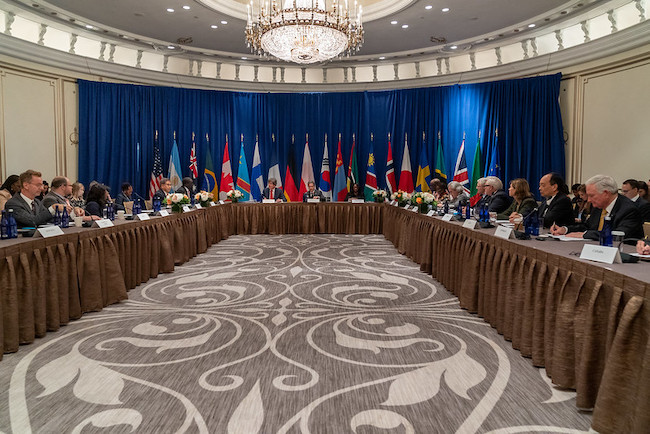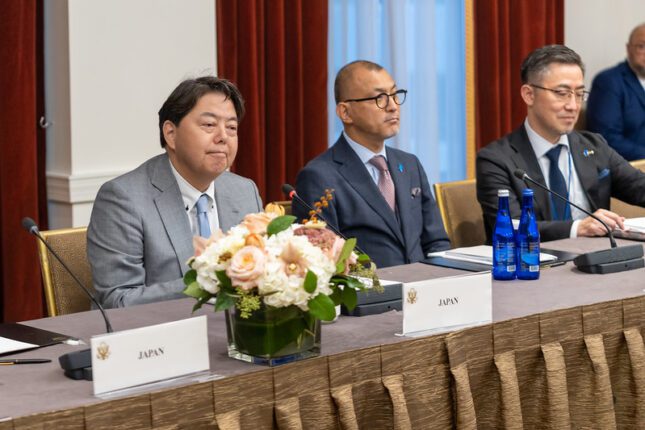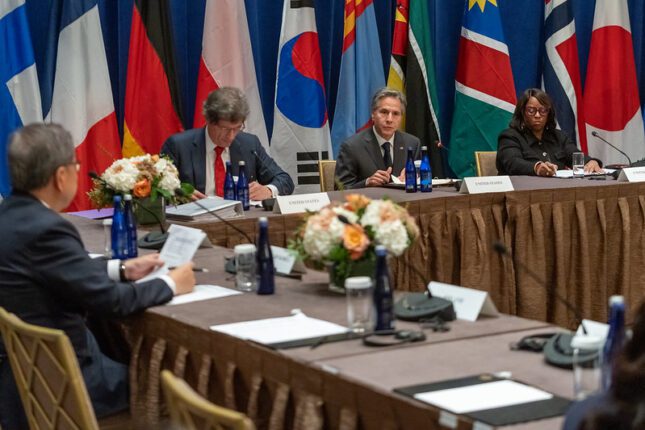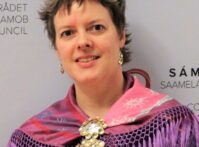-
How to Diversify Mineral Supply Chains – A Japanese Agency has Lessons for All
August 15, 2024 By Nayan Seth
On October 27, 2010, after meeting with her Japanese counterpart, US Secretary of State Hillary Clinton expressed concerns over allegations of a Chinese ban on exports of Rare Earth Elements to Japan. “This served as a wakeup call,” she announced while advocating for “additional sources of supply.” Beijing’s alleged ban came after skirmishes in the disputed Senkaku Island waters. But apart from Japan, not many countries acted on the wake-up call.
When the crisis hit, Tokyo went on a war footing. Within a decade, Japan reduced its reliance on Chinese rare earths from 90% down to 58% by implementing a multifaceted strategy – investments in overseas mines, development of new technologies and materials to reduce the use of rare earths and more.
At the heart of Japan’s successful rare earths and other critical mineral diversification efforts lies a government agency that has played an outsized role in ensuring Tokyo has unfettered access to metals required for decarbonization goals and economic security. JOGMEC (Japan Organization for Metals and Energy Security) – is a one-stop shop that spearheaded Japan’s global effort to diversify mineral supply chains and reduce its dependence on China for its midstream and downstream industries. While JOGMEC-like agencies exist in other countries like South Korea, the scope and scale of the Japanese operations are unmatched. Its comprehensive policy and long-term financing functions hold valuable lessons for governments worldwide struggling to escape China-controlled mineral supply chains.

Japanese Foreign Minister Hayashi Yoshimasa (first from left) in a meeting with US Secretary of State Antony Blinken and Republic of Korea Foreign Minister Park Jin in New York City on September 22, 2022.
One-Stop Shop for Japan’s Mineral Access
JOGMEC was created in 2004 by Japan’s Ministry of Economy, Trade and Industry (METI) by integrating the existing Metal Mining Agency and Japan National Oil Corporation to ensure a stable supply of minerals, oil and natural gas for the economy. On critical minerals, METI formulates the country’s policy and JOGMEC is the implementation agency.
Headquartered in Tokyo with branches in 13 countries, JOGMEC secures overseas mineral resources by promoting:
- early-stage and advanced-stage exploration,
- recycling;
- development of alternative materials;
- stockpiling efforts;
- pollution mitigation; and,
- technical and technological support for overseas geological surveys
JOGMEC’s direct financial assistance through public-private partnerships plays a crucial role in Japan’s overseas mineral security efforts as it offers funds for all stages of mineral access – exploration, mine development, production and processing. To mitigate financial risks attached to the mineral projects, the agency handholds the Japanese private sector through liability and debt guarantees and equity participation in projects and loans.
Dr. Kristin Vekasi, Associate Professor at the University of Maine, explained the process in an interview. “Private companies approach JOGMEC with a development plan that is carefully vetted by the organization before receiving funding. These projects then follow a public-private partnership model, where the public finance portion is focused on the viability of the project.” JOGMEC is also prepared to offer substantial long-term funding, “which is particularly important at the initial mining stages,” she added. In many mineral projects, JOGMEC has invested up to 75% financial backing to reduce risk for private enterprises.
While Japan had a critical mineral policy since the 1980s, the Chinese 2010 embargo exposed its weaknesses. According to Dr. Vekasi, the blockade also motivated the Japanese private sector “to diversify more seriously.” JOGMEC was spurred to intensify its efforts to not just assist private sector companies acquire overseas mines but also build capacity of foreign companies in resource-rich countries.
From 2004-2020, JOGMEC was involved in over 100 projects, investing over $600 million with many successes and a few failures. Currently, it is carrying out over 30 projects in 15 countries. JOGMEC also participates in international efforts such as the Minerals Security Partnership, aiming to create a framework for coordination among allies and friends on mineral supply chains.
The biggest success story has been its strategic investment in the Australian rare earth giant, Lynas. Just days after China ended its rare earth embargo, JOGMEC oversaw the signing of a $250 million deal between Japanese conglomerate Sojitz and Lynas, under which Lynas promised rare earths to Japan in exchange for equity and loans. The deal saved Lynas from financial collapse and helped Japan diversify its supply of rare earths. The company now produces 12% of the global rare earth oxides with a mine in Australia and a refining plant in Malaysia. It also provides one-third of Japan’s overall rare earths supply and 90% of its light rare earths. In 2023, Japan signed new deals with Lynas to secure heavy rare earths as it still relies heavily on Beijing for them.

US Secretary of State Antony Blinken participates in the Minerals Security Partnership meeting in New York City on September 22, 2022
JOGMEC’s Lessons on Diversification
While each country’s mineral strategy differs due to unique resource endowments and divergent national interests, JOGMEC’s record offers a roadmap of successful policy options – such as targeted investments, building capacity in resource-rich countries, and government-supported long-term financial assistance methods like equity, debt guarantees, and loans.
As it takes an average of 7-10 years to open a domestic mine in the United States due to strict environmental and social regulations, following JOGMEC’s model of securing overseas mining interests through direct and indirect interventions is a promising strategy.
While the USAID offers a few grants, the International Development Finance Corporation (DFC) is the primary organization responsible for overseas mineral investments. But, it financed just 12 projects – or 1.2% of all DFC’s undertakings. While it provides direct financing in exchange for equity, the agency still lacks a long-term vision and an “all in” approach in its operations.
Despite the Biden administration’s focus on providing incentives for critical mineral mining to fuel the clean energy transition, the private sector struggles to compete with China due to metal price fluctuations and a lack of long-term government support.
The United States is also participating in bilateral projects and leading many international efforts to create a China-free supply chain, but the scale of the collaboration needs to increase manifold to make any serious dent in the existing supply chains. The Japanese experience could also be effectively leveraged under the recent US-Japan Critical Minerals Agreement to intensify diversification efforts.
Europe too has recently created a European Critical Raw Materials Board to lead an EU-wide mineral security response, which includes providing advice for access to finance. While it’s a welcome move, the board still lacks the financial muscle and tools to implement high-risk projects in third countries.
A JOGMEC-like approach, which is laser-focused on securing overseas natural resources, is a template for US and European policymakers. Successfully escaping China’s orbit of critical minerals requires an immediate increase in state investments to support private companies with checks and balances. Japan’s JOGMEC model serves as a good starting point. Because another wake-up call could be too late to act.
This article is part of the China Environment Forum’s China and the Global Energy Transition project that is exploring China’s role in promoting a clean energy transition in the Global South.
Nayan Seth is a multimedia journalist with over 15 years of experience in India and China. He is currently pursuing a master’s degree at the Fletcher School at Tufts University and is part of the Wilson Center’s China Environment Forum, where he researches the diversification of supply chains for Rare Earth Elements.
Lead Photo Credit: Photo courtesy of the US State Department
All Other Photo Credits: Courtesy of the US State Department, photos by Ron Pryzsucha
Sources: Bloomberg, CSIS, dfc.gov, European Commission, Financial Times, Foreign Policy, IEA, JOGMEC, mineralprices.com, minedocs.com, Mining.com, National Bureau of Asian Research, National Mining Association, New York Times, Nikkei, oxfordenergy.org, The White House, USAID, US State Department, ustr.gov
 A Publication of the Stimson Center.
A Publication of the Stimson Center.








